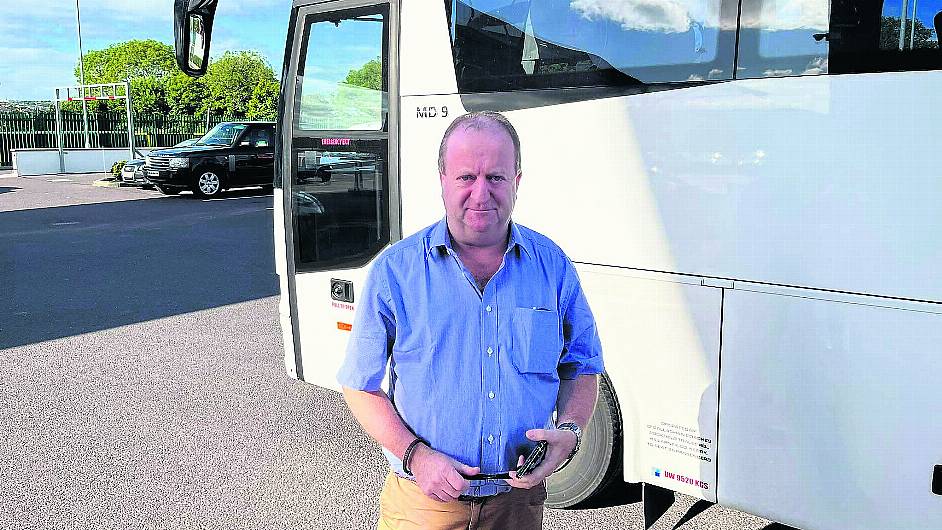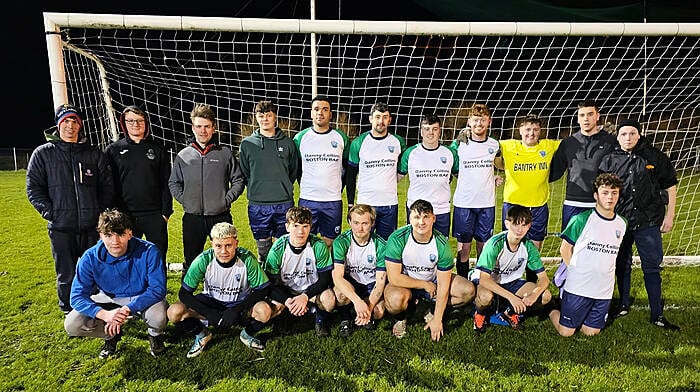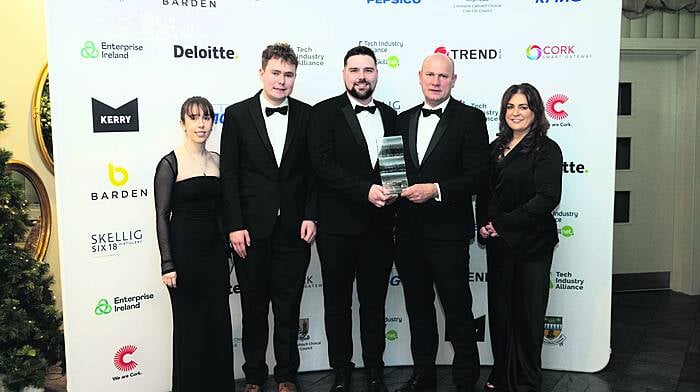THE money spent on the Leinster House bike shed could have been used to save the eyesight of 140 people awaiting cataract surgery.
That was the stark reaction to the debacle this week as it emerged €350,000 had been spent by the Office of Public Works on the bike shed on Kildare Street. This was revealed in the same week that cuts in reimbursements for cataract surgeries in Northern Ireland came into effect, slashing the refunds from €1,912 to around €1,100 for some of the most common procedures. Cataract surgery in the North costs around €2,400 per eye.
Independent Ireland leader and Cork South West TD Michael Collins, who has been active in bringing patients to the North for treatment on the ‘Belfast or Blind’ cataract buses, said he will raise the reduced reimbursement when the Dáil returns on Monday, September 16th.
‘This affects the most vulnerable people in West Cork and it will be top of my agenda in Dáil business,’ Deputy Collins said.
‘People are desperate, but many won’t be able to afford to pay for this surgery now. I’ve said it before – people will go blind over this.
‘When you compare this to the €335,000 of taxpayers’ money spent on a bicycle shed for Leinster House, the amount of people who could have had cataract surgery, and now it will cost them even more. This is nothing short of scandalous.’
A cataract is a clouding of the eye’s lens, which worsens as the cataract grows. Some can grow quickly and cause blindness in months. Surgery involves removing the lens and replacing it with an artificial lens.
More than 2,000 people have taken the ‘Belfast or Blind’ bus to Northern Ireland for surgery since 2017, with a huge number coming from West Cork, and more than 4,000 procedures taking place.
Deputy Collins organised 10 buses in the second and third week of August, with an average of about 15 patients, plus carers, on each bus.
A new ophthalmology theatre suite opened last year in the South Infirmary-Victoria University Hospital campus which aimed to bring down wait times for cataract surgeries. The HSE also funded additional staff, including new ophthalmic consultants and non-consultant hospital doctors.
According to the HSE, these initiatives did dent waiting lists in the region and recruitment of one ophthalmic consultant and three registrars was continuing.
Last month, the HSE said only 45 people were waiting six to nine months for cataract surgery, with 109 people waiting three to six months, and 192 waiting up to three months.
But Deputy Collins rejects these figures, noting that nationally 32,000 people were awaiting even an assessment, let alone a cataract procedure.
‘I have had people on the bus in August who were waiting four years for surgery. These people are going blind. They can’t wait. They are not going up for the fun of it,’ said Deputy Collins.
‘It would be much simpler for everyone if these services were available in Bantry or Cork or Mallow and people didn’t have to travel at all.’
Health Minister Stephen Donnelly said his Department had consulted with the HSE before approving the new reimbursement figures. It said ‘a reclassification of certain cataract procedures’ followed a review of costings ‘following the international coding system’ which governs the reimbursements.
Deputy Collins also runs operations for other procedures, including hip, knee, and carpal tunnel surgery procedures in Northern Ireland, dubbed the ‘Hip-Op bus’, with procedures in Belfast and Derry.
He predicted the numbers of patients seeking to access this service in the North is about to ‘explode’, with increased numbers seeking the surgery. Hip operations can cost in the region over €10,000 but the HSE will reimburse ‘around 98% of the cost’, said Deputy Collins. He is increasing the frequency of these buses from one every six weeks, to one every three weeks.










